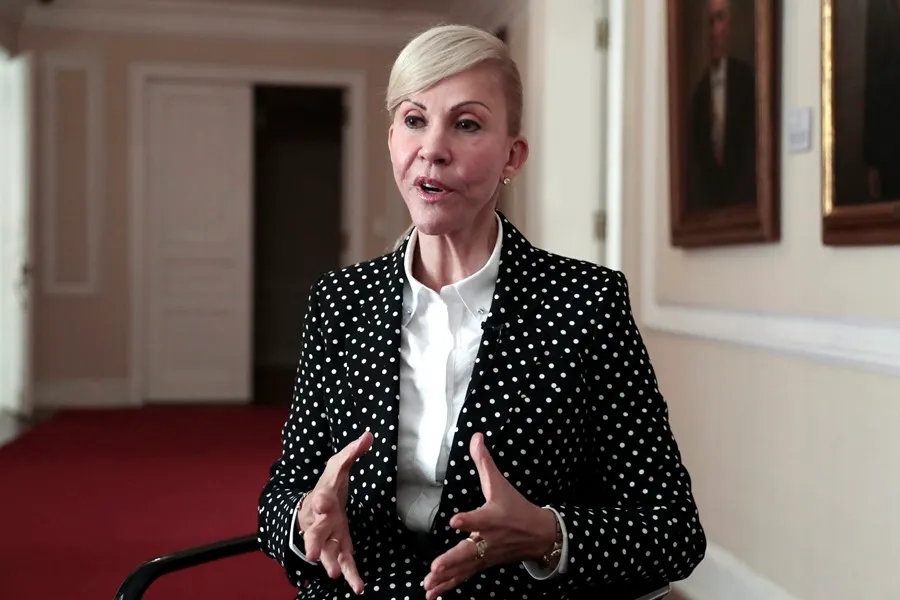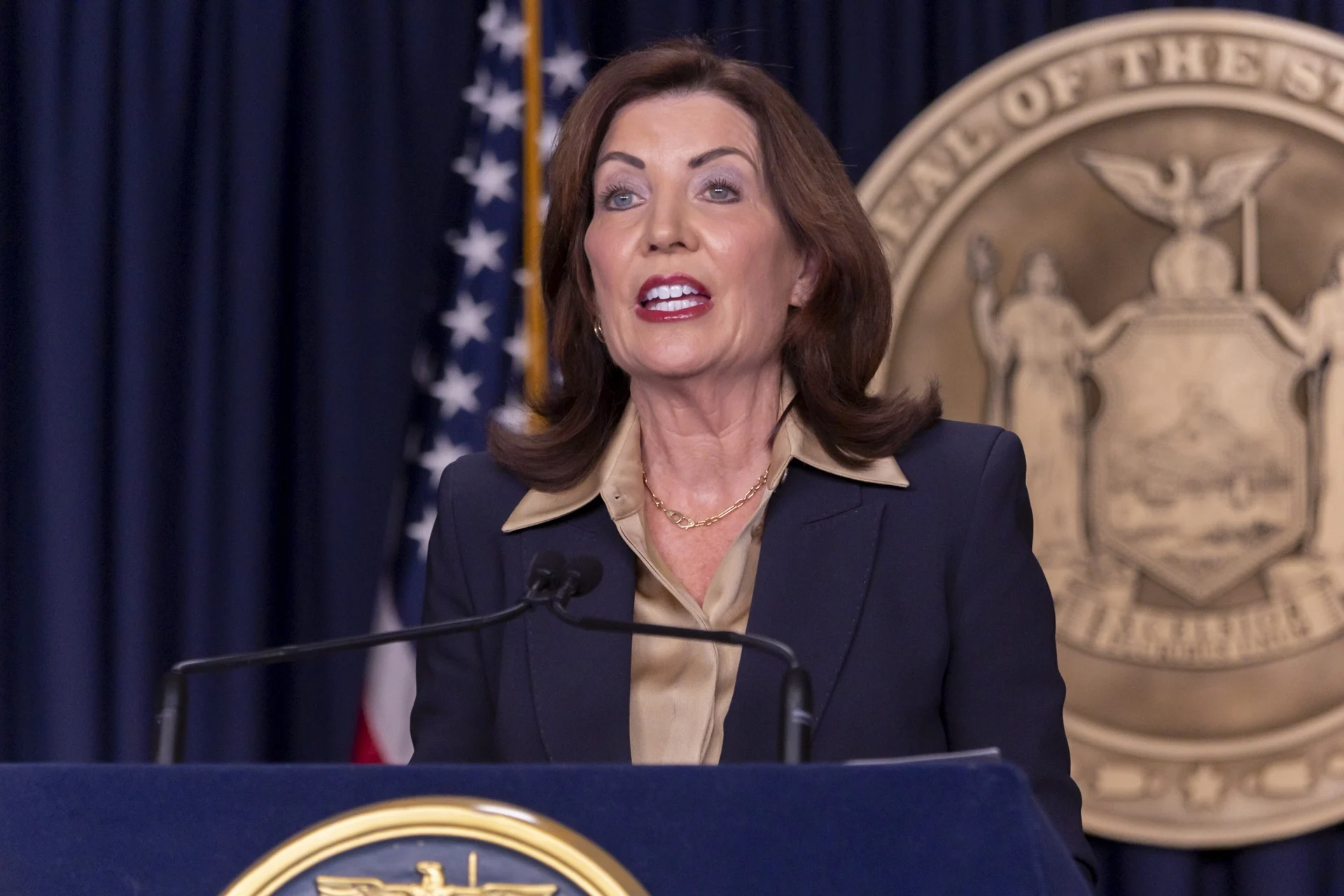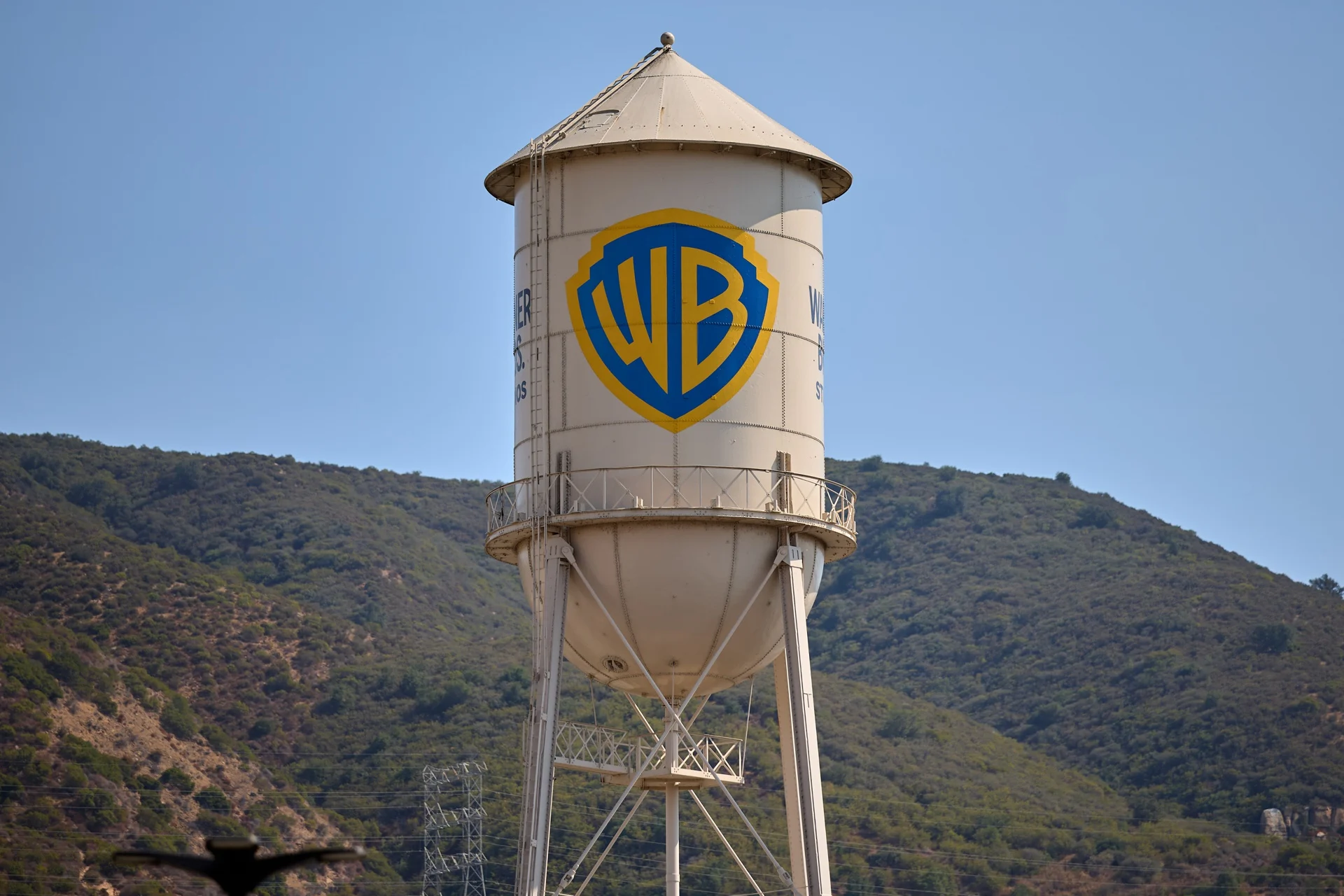International
Governor in Colombia: A ceasefire can be a demonstration of peace before COP16

The governor of the Colombian department of Valle del Cauca, Dilian Francisca Toro, believes that a ceasefire between armed groups in the Pacific “can happen” and would be “a demonstration of the will” of peace before the upcoming celebration of COP16 in Cali, the capital of that region.
“This has to serve, that nature, which is what reconciles us and is reconciling us at this moment, the conservation of life, serves for them to reflect and see that the most important thing is to be able to achieve peace, reconciliation and tranquility above all these communities so suffered,” Toro explains in an interview with EFE.
The objective of the United Nations Conference on Biodiversity (COP16), to be held from October 21 to November 1, with the participation of about 12,000 people, is to address the loss of biodiversity, restore ecosystems, distribute the benefits in a fair and equitable way and protect the rights of indigenous peoples.
However, the armed groups operating in the Pacific region have intensified their attacks in the vicinity of Cali in recent months, which set off alarms before the upcoming celebration of COP16, especially after the Central Staff (EMC), the main dissident of the FARC, referred to this international summit.
“I believe that (a ceasefire) can be a demonstration of the will to reduce all that onslaught of violence and suffering that the people of the Pacific have had, because it is those of the Colombian Pacific who have suffered the most violence and conflict,” says the governor.
Despite this, Toro is “completely calm” that COP16 will take place with total normality and without setbacks. “We have the certainty and we want to give all the certainty and security to the entire Colombian and international community,” he says.
The governor insists that to guarantee security there will be a “very great reinforcement of capabilities by the Army, the Police” and the regional authorities, including the purchase of technology such as anti-drones.
“What we want is for everyone to live it, that they do not tell them about it, but that they live the diversity in our region” and that they discover that “we can do a lot of ecotourism and that there nature is taken care of by indigenous, Afro-descendant, peasant communities and also civil society,” he says.
Toro highlights among the events of COP16 the summit of mayors and regional authorities that will take place on October 26, where they do not want to discuss, but to listen to the communities of each of the regions that are represented to know “how they take care of life, how they take care of nature, how they do to have sustainable development.”
“It is an opportunity, not only to take care of the environment, but that (COP16) becomes a closure of social gaps and inequalities, generating a sustainable economic development for those communities that live and that take care of that nature,” and those communities are precisely the ones that will be the protagonists of the summit, emphasizes the governor.
As for the expectations with COP16, he is confident that not only will the high-level negotiations “come to a successful conclusion,” but that “will serve to be able to continue taking care of nature, continue caring for biodiversity by 2030 as it is established.”
“And the most important thing is that we as a region, as a department, have a legacy (…) of culture, of the awareness of taking care of nature,” he adds.
So far, 145 delegations have confirmed their attendance, in addition to observer organizations, youth groups, civil society, academies and the general public that will negotiate and discuss the importance of the protection and restoration of nature through 23 goals for 2030 and four objectives for 2050.
International
New York Announces First 2,000 Seats in Universal 2-K Program

The Governor of New York, Kathy Hochul, and New York City Mayor Zohran Mamdani took another step today in their universal early education agenda by announcing the communities that will have access to the first 2,000 seats in the new 2-K program this fall — an initiative backed by a $73 million investment.
The funding is part of the $1.2 billion package previously unveiled by Hochul to strengthen child care and early childhood education across the city, one of the key campaign promises of the now Social Democratic mayor.
At the time of the announcement, the governor also outlined additional funds to reinforce the existing 3-K early education infrastructure, a program launched under former Mayor Bill de Blasio (2014–2021).
When the 2-K initiative was introduced in January, Mayor Mamdani explained that its first phase would offer 2,000 seats, with the goal of eventually expanding into a universal program — a commitment supported by the governor.
State investment in child care and preschool services is expected to increase to $4.5 billion by fiscal year 2027.
Among the first communities set to benefit from the 2,000 seats are Upper Manhattan and Inwood — areas with large Dominican populations — as well as Fordham and Kingsbridge in the Bronx, a borough with a Latino majority.
In East Brooklyn, Canarsie, Brownsville, and Ocean Hill will also be included. Meanwhile, Ozone Park and the Rockaways are among the neighborhoods that will see the rollout of the 2-K program.
International
Warner Bros. Developing First ‘Game of Thrones’ Movie With ‘Andor’ Writer

Warner Bros. is developing the first feature film based on the hit saga Game of Thrones, with Beau Willimon — screenwriter of Andor — attached to direct, according to a report published Tuesday by Page Six.
The project, currently in early development, will focus on the conquest of King Aegon I Targaryen. A separate television adaptation centered on the same historical storyline within the franchise is also in early stages at HBO.
However, the outlet noted that it remains unclear whether the film will move forward following the recent acquisition of Warner Bros. Discovery by Paramount Skydance.
If the merger is finalized, the movie could potentially be shelved, although that scenario appears unlikely given that the Game of Thrones franchise remains one of HBO’s most valuable and beloved properties.
After six seasons adapting the work of George R. R. Martin, the platform expanded the universe with House of the Dragon, a prequel series set 200 years before the events of Game of Thrones that explores the history of House Targaryen.
International
Spain’s Prime Minister to Address Nation Amid Trump’s Trade Threats

The Prime Minister of Spain, Pedro Sánchez, will deliver an institutional address this Wednesday at the Moncloa Palace regarding the escalating situation in the Middle East and recent threats directed at Spain by U.S. President Donald Trump.
The Spanish government announced that Sánchez will make a statement at 9:00 a.m. local time to outline his position on the latest developments following the U.S. and Israeli attacks on Iran.
Sánchez is expected to reiterate Spain’s reasons for opposing the use of U.S. military bases on Spanish soil in the operation—an action he has already described as being outside international law—while also expressing criticism of the Iranian regime.
Government sources indicated that the address had been planned prior to Trump’s remarks criticizing Spain’s stance. However, following those comments, Sánchez is now also expected to respond directly to the U.S. president’s statements.
Trump has threatened to “cut all trade with Spain” and said he wants “nothing to do” with the country after Madrid refused to authorize the use of the Morón and Rota military bases in southern Spain for operations against Tehran.
The U.S. president also labeled Spain “a terrible NATO partner” and warned that “no one” would tell him he could not use the facilities.
In response, the Spanish government stated that Spain fulfills its commitments to NATO and European defense. It also warned Trump that any review of bilateral trade relations must respect international law and the agreements in place between the European Union and the United States.
-

 International3 days ago
International3 days agoIran Reports 201 Dead, 747 Injured After U.S. and Israeli Strikes
-

 International3 days ago
International3 days agoPope Leo XIV Urges End to ‘Spiral of Violence’ in Middle East
-

 International3 days ago
International3 days agoSecurity Council to Hold Emergency Meeting on Middle East Crisis
-

 International1 day ago
International1 day agoBrazil’s Supreme Court Rejects Bolsonaro’s Bid for House Arrest
-

 International4 days ago
International4 days agoTrump Floats “Friendly Takeover” of Cuba Amid Rising Tensions
-

 Sin categoría3 days ago
Sin categoría3 days agoTrump: ‘We Think It’s True’ Amid Claims Iran’s Supreme Leader Was Killed
-

 International4 days ago
International4 days agoArgentina’s Senate Reviews Milei-Backed Labor Overhaul
-

 International1 day ago
International1 day agoAnti-ICE Billboard Campaign Targets Immigration Spending in 31 U.S. Cities
-

 International1 day ago
International1 day agoTrump Warns of ‘Major Wave’ of Attacks as Iran Conflict Escalates
-

 International1 day ago
International1 day agoMexico Calls for Immediate Probe After National Dies in ICE Custody
-

 International12 hours ago
International12 hours agoSpain’s Prime Minister to Address Nation Amid Trump’s Trade Threats
-

 International11 hours ago
International11 hours agoNew York Announces First 2,000 Seats in Universal 2-K Program
-

 Central America1 day ago
Central America1 day agoPanama Canal Monitoring Trade as Middle East Conflict Disrupts Shipping
-

 International1 day ago
International1 day agoBolivia Orders Three Investigations Into Deadly Military Plane Crash
-

 Central America11 hours ago
Central America11 hours agoGuatemala’s Attorney General Fails in Bid for Top Court Seat Amid Corruption Allegations
-

 International11 hours ago
International11 hours agoWarner Bros. Developing First ‘Game of Thrones’ Movie With ‘Andor’ Writer




























